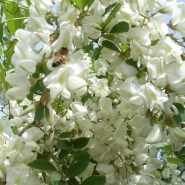1. What is Quercetin?
Quercetin is a widespread plant chemical, or phytochemical, known as a flavonoid or bioflavonoid; more precisely, called flavonols. Quecertin appears to have significant anti-inflammatory and anti-oxidant properties.
2. How did people discover Red Wine extract ?
Practitioners of traditional medicine have a long espoused the use of quercetin-containing plants to treat numerous medical conditions, including arthritis, allergies, heart disease, cataracts, cold sores and gout. Some practitioners also suggested quercetin supplements to anti-cancer activities. Until 1930s, Hungarian physiologist Albert Szent-Gyorgyi first isolated flavonoids, his work introduced the scientific community to these phytochemicals.
3. Where can we find it ?
Many food items contain quercetin. These include garlic and onions; broccoli, cauliflower, Brussels sprouts, cabbage and other brassica vegetables, apples, berries and many othe fruit; drink like green tea, red wine. This plant chemical is also found in commonly used medicinal herbal supplements such as St. John wort and Gingko biloba.
4. What are the clinical implication of Quercetin ?
Anti-cancer
Cell cultures studies have indicated that quercetin slow the growth of and encourages the programmed cell death of cancer cells. This is important because cancer cell do not undergo programmed cell death as normal cell does.
Anti-inflammatory
In addition to the cell-culture research, animal studies have also shown that quercetin may be effective in protecting against various cancers.
Quercetin’s anti-inflammatory activity appears to be due to its antioxidant and inhibitory effects on inflammation-producing enzymes (cyclooxygenase, lipoxygenase) and the subsequent inhibition of inflammatory mediators, including leukotrienes and prostaglandins. Inhibition of histamine release by mast cells and basophils also contributes to quercetin’s anti-inflammatory activity.
Quercetin is sometimes prescribed to treat arthritis, which is an inflammation of the joints, and to prevent atherosclerosis (sometimes called hardening of the arteries).
Anti-oxidation
It is also used treat or prevent cataracts and macular degeneration, which are thought to perhaps be related to the action of free radicals.
Prostate health
Quercetin is also believed to lessen the burning pain associated with chronic prostatitis, which is an inflammation of the prostate and to treat ulcers.
Skin care
Some users of quercetin assert that it helps wounds heal more quickly.
Heart health
Practitioners may prescribe quercetin to help lower cholesterol levels.






























